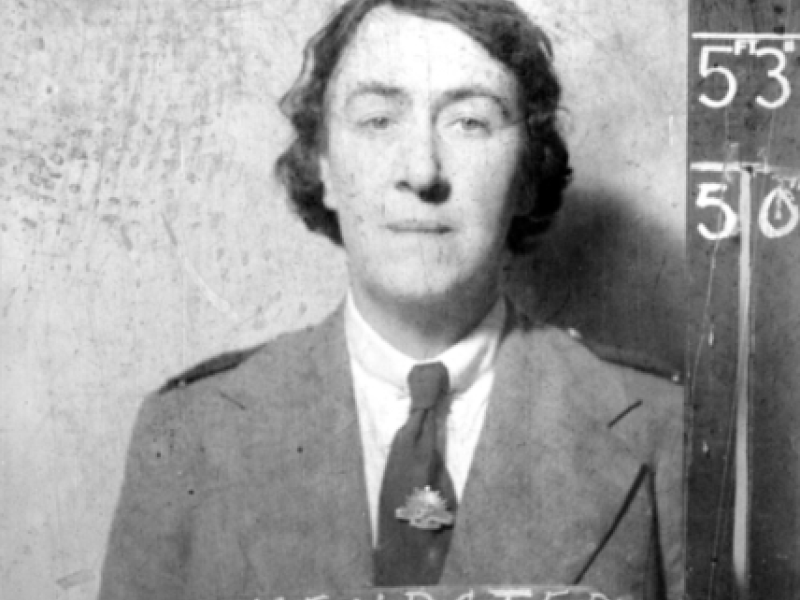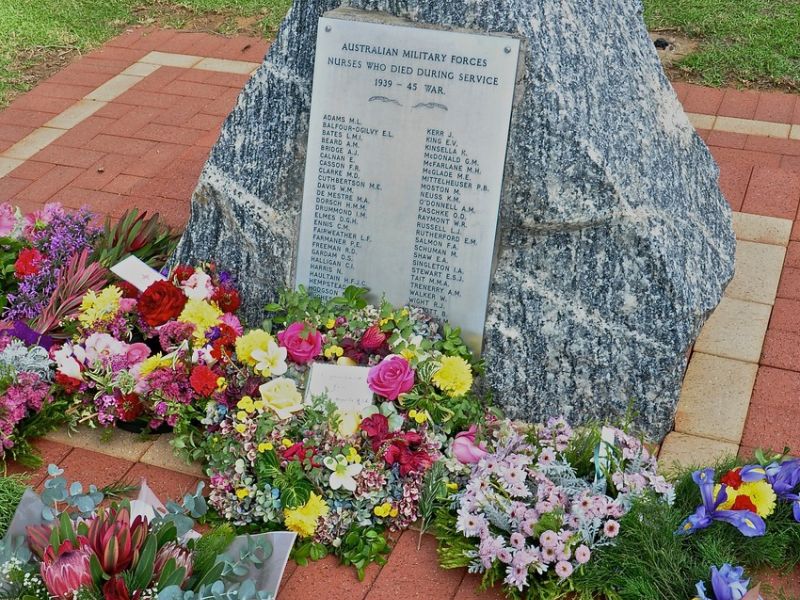Captain Pauline Blanche Hempsted, Australian Army Nursing Service
Known as “Blanche”, Pauline Hempsted was born on 9 September 1908 to Percy and Bertha Louise Hempsted of the Brisbane suburb of Graceville. The family was hit with tragedy early on, when Pauline’s brother, Claude, was killed aged 11, crushed between a train and the platform.
Hempsted attended St Margaret’s Girls School in Brisbane. She trained as a nurse at Brisbane General Hospital from 1934 to 1938.
On 27 April 1941, Hempsted enlisted in the Australian Army Nursing Service with the 13th Australian General Hospital. She was posted to Singapore and Malaya.
In late 1941, Japanese forces attacked Pearl Harbor and began an assault on northern Malaya, moving south toward Singapore. The Australian nurses tried to stay with their patients but were ordered to evacuate. Hempsted was one of 65 Australian nurses who left Singapore aboard the Vyner Brooke on 12 February 1942.
Two days later, the ship was bombed by the Japanese, killing 30. Hempsted made it to a lifeboat however it was riddled with shrapnel holes, so they crowded among nearby rafts. Without oars, they drifted aimlessly, and took turns swimming alongside to lighten the load. Eventually, two Australian airmen and some Malay locals rescued them. The women were subsequently captured by the Japanese and taken to a camp at Muntok, Sumatra.
Life in the internment camp was harsh, punctuated by diminishing rations, harsh conditions, and cruel treatment by Japanese soldiers. The nurses worked hard to keep their spirits up, organising concerts and crafting things to sell in exchange for money to buy food.
In late 1943, the nurses were allowed to write postcards home. Hempsted’s letter to her mother was upbeat:
The thrill of being able to write after 12 months’ silence and to let you know I am absolutely fit and well, in fact never felt better in health. Had trouble with my ear at first, always do with ocean water, but it was soon rectified. We are in a pretty little place, quiet and peaceful, away from any sort of turmoil. You will be disappointed to know your album is at the bottom of the sea … we have lost everything, but nevertheless we are among friends who do their best to keep things and us well and contented … Keep well and look forward to the happy day when you will be welcoming me home again.
As the years wore on, the lack of food and ever-present illnesses took their toll. Pauline Hempsted died after a long battle with beriberi on 19 March 1945. She was remembered as an extremely hard worker, and fellow nurse Jessie Simons later wrote that “she was sorry for the trouble her illness had caused”.
After the war, Hempsted’s remains were reinterred at the Jakarta War Cemetery.
Changes to the AIF structure in 1943 saw serving nurses given ranks similar to their male counterparts and Blanche Hempsted was made Captain in 1943.
Hempsted’s mother, who also lost her husband in 1942, was informed of her daughter’s death in 1945.

 Australian War Memorial
Australian War Memorial